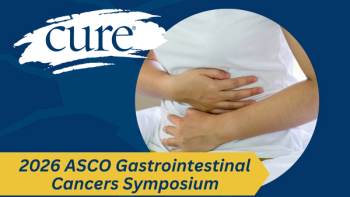
CAR-T Cell Therapy Shows Potential in Relapsed/Refractory Mantle Cell Lymphoma
Treatment with lisocabtagene maraleucel, also known as liso-cel, demonstrated clinical activity and appeared tolerable among patients with relapsed/refractory mantle cell lymphoma.
Treatment with lisocabtagene maraleucel, also known as liso-cel, demonstrated clinical activity and appeared tolerable among patients with relapsed/refractory
“The high-risk patients with mantle cell lymphoma always relapse, and therefore, the current cell therapy is the major advance in mantle cell lymphoma,” lead researcher Dr. Luhua (Michael) Wang, professor in the Department of Lymphoma & Myeloma at The University of Texas MD Anderson Cancer Center, said in an interview with CURE.
Most patients with MCL relapse after front-line chemoimmunotherapy, with salvage therapy inducing poor responses as well. Therefore, the researchers set out to evaluate the safety, pharmacokinetics and antitumor activity of liso-cel, an investigational defined composition CD19-directed chimeric antigen receptor (CAR)-T cell product candidate. At the 2019 American Society of Clinical Oncology Annual Meeting, Wang presented the initial dose-finding results from the study.
Seventeen patients received one of two doses of liso-cel: 50 × 106 or 100 × 106 total CAR-T-positive cells following lymphodepleting chemotherapy.
The most common grade 3 or higher side effects were thrombocytopenia (41%), anemia (35%) and neutropenia (35%). Grade 3 or higher cytokine release syndrome (a systemic inflammatory response caused by cytokines released by infused CAR-T cells) and neurological events occurred in 6% and 12% of patients, respectively. The researchers observed one fatal event of tumor lysis syndrome.
The best overall response rate across dose levels was 71% (12 responses) and the best complete response rate was 53% (nine complete responses).
“The phase-finding part of the trial has been proven to be efficacious with a pretty good safety profile,” Wang said. “Therefore, we have expanded into a cohort of 28 patients.”
These results are consistent with those seen in all patients treated with liso-cel in the TRANSCEND NHL 001 study, according to a press release issued by Juno Therapuetics — the developer of the CAR-T cell therapy. “This is a very robust program,” added Wang.
With potential demonstrated in this ongoing phase 1 study, Wang noted that the era of precision medicine is here to stay. “We are fast approaching the precision medicine era. We could use DNA, RNA epigenetic mutation and will the discrete mechanism of resistance of each patient and use what we can according to aim to target these pathways so we can overcome resistance in the personalized therapy for each patient. This is what is coming in the future of the cell therapy era.”
And, while he noted that mantle cell lymphoma treatment is one of the most rapidly progressing fields in hematology and oncology, Wang looks forward to the future in this space. “It is a very exciting time. In the past it took 10 to 20 years to happen and now new progress happens every six months or so.”



